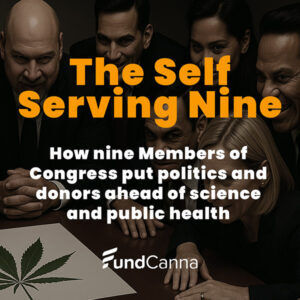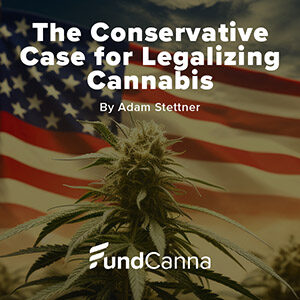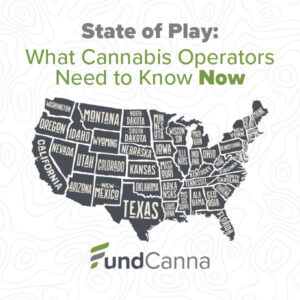This is Your Brain On Drugs. (Or is it?)
By Adam Stettner
For decades, public policy and cultural messaging have drilled one idea into the collective consciousness: Cannabis dulls the mind.
Politicians, educators and media campaigns warned that marijuana would rob you of ambition, damage your brain and erode your intelligence. That narrative was accepted largely without question, not because it had been rigorously proven, but because it was widely repeated and not tested.
We now have reason to challenge that assumption, thanks to a large, federally funded study published as a preprint (a research paper made available before it is formally published) via Nature Portfolio.
Researchers analyzed brain imaging and cognitive data from 37,929 adults aged 44 to 81 in the UK Biobank. The result? Cannabis users consistently outperformed non-users across multiple cognitive domains, with brain patterns more typical of younger individuals.
The study even suggests that cannabis use could be linked to a deceleration of neural aging processes and preservation of cognitive function later in life.

If these findings hold true under peer review, they flip the old narrative on its head. But here’s the catch, research like this is rare in the United States precisely because of prohibition.
Prohibition’s Real Damage:
Scientific Blindness

Cannabis remains federally classified as a Schedule I drug, the same legal tier as heroin, defined as having “no accepted medical use” and “high potential for abuse.” This classification does more than criminalize cannabis, it erects enormous barriers for scientists.
- Bureaucratic Hurdles: Researchers must navigate layers of approvals from multiple federal agencies just to study cannabis, a process far more restrictive than for most other substances, including opioids.
- Limited Supply: For decades, U.S. researchers could only access cannabis grown at a single, federally approved facility in Mississippi, notorious for producing material that bears little resemblance to the cannabis consumers actually use.
- Funding Restrictions: Federal grants for cannabis studies have historically been easier to secure if the research focused on harm, not potential benefits.
Prohibition’s Real Damage:
Scientific Blindness

Cannabis remains federally classified as a Schedule I drug, the same legal tier as heroin, defined as having “no accepted medical use” and “high potential for abuse.” This classification does more than criminalize cannabis, it erects enormous barriers for scientists.
- Bureaucratic Hurdles: Researchers must navigate layers of approvals from multiple federal agencies just to study cannabis, a process far more restrictive than for most other substances, including opioids.
- Limited Supply: For decades, U.S. researchers could only access cannabis grown at a single, federally approved facility in Mississippi, notorious for producing material that bears little resemblance to the cannabis consumers actually use.
- Funding Restrictions: Federal grants for cannabis studies have historically been easier to secure if the research focused on harm, not potential benefits.
What Else Might We Be Wrong About?
The new cognitive performance study should force us to ask, if we’ve been wrong about cannabis and intellect, what other assumptions deserve to be re-examined?
- Mental Health: We’ve often heard that cannabis causes or worsens anxiety and depression. But is that universally true, or might it, in some cases, alleviate symptoms? There are countless examples of real people using cannabis to help them with depression, anxiety and panic attacks.
- Chronic Pain & Inflammation: Cannabis is increasingly used by people for pain management, yet we still don’t fully understand its long-term efficacy compared to opioids or NSAIDs. We know that opioids are highly addictive and cause hundreds of thousands of deaths annually but we continue to manufacture, prescribe and sell them. What might we learn about how cannabis can assist with pain management?
- Neuroprotection: If cannabinoids truly help preserve brain function with age, could cannabis play a role in preventing or slowing conditions like Alzheimer’s or Parkinson’s? Can it help manage symptoms once these awful diseases/conditions exist?
- Social & Economic Impact: We’ve assumed legalization would unleash public health crises, yet data from legal states shows stable or declining youth use, reduced opioid overdose deaths, hundreds of thousands of jobs and tens of billions in tax revenue.
- Mental Health: We’ve often heard that cannabis causes or worsens anxiety and depression. But is that universally true, or might it, in some cases, alleviate symptoms? There are countless examples of real people using cannabis to help them with depression, anxiety and panic attacks.
- Chronic Pain & Inflammation: Cannabis is increasingly used by people for pain management, yet we still don’t fully understand its long-term efficacy compared to opioids or NSAIDs. We know that opioids are highly addictive and cause hundreds of thousands of deaths annually but we continue to manufacture, prescribe and sell them. What might we learn about how cannabis can assist with pain management?
- Neuroprotection: If cannabinoids truly help preserve brain function with age, could cannabis play a role in preventing or slowing conditions like Alzheimer’s or Parkinson’s? Can it help manage symptoms once these awful diseases/conditions exist?
- Social & Economic Impact: We’ve assumed legalization would unleash public health crises, yet data from legal states shows stable or declining youth use, reduced opioid overdose deaths, hundreds of thousands of jobs and tens of billions in tax revenue.
The Bigger Picture
- The irony is hard to fathom. Prohibition, sold to the public as a way to protect health, has deprived us of the very scientific clarity needed to make evidence-based decisions. Instead of preventing harm, it has prolonged ignorance. It’s time to treat cannabis like any other area of medical and social research; with rigorous, unbiased study. That means rescheduling it, removing unnecessary research barriers and funding investigations into both potential harms and potential benefits.
Because here’s the truth: Science doesn’t fear what it will find. Only prohibition does.
Adam Stettner is an entrepreneur, financial executive and founder/CEO of FundCanna, a leading provider of financial solutions for the cannabis industry. With over 30 years of experience in business and capital markets, throughout his career he has funded over $20 Billion to consumers and businesses nationwide. He is a vocal advocate for balanced, logical, data-driven policy in emerging or underserved industries.
More From Our Blog
Need Capital Fast?
Let's Talk Today - No Obligation
Follow Us
Explore
info@fundcanna.com















